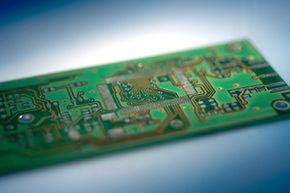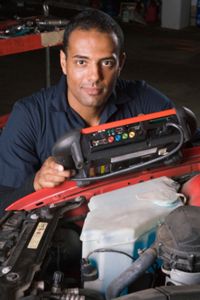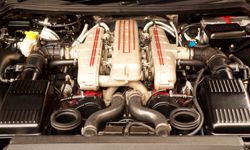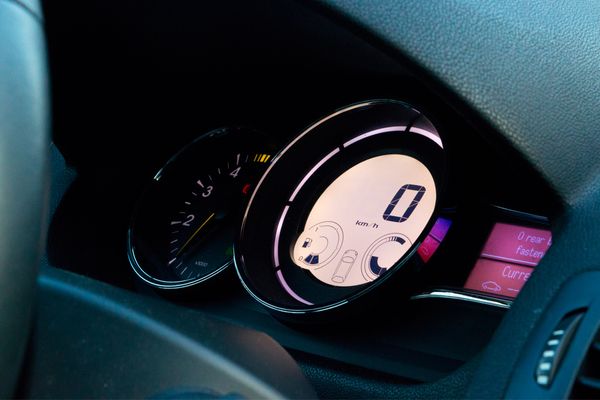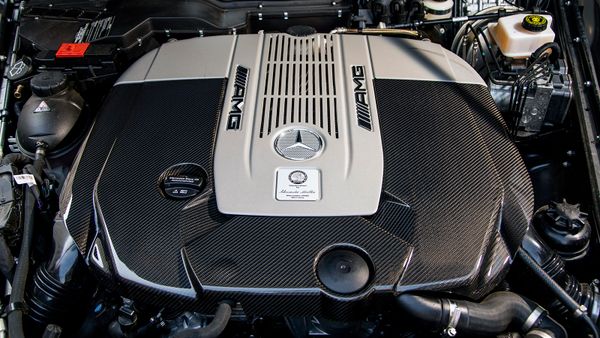The ECM is a computer, and features many of the same parts as the computer you have at home or at work. There's a microprocessor that receives, interprets and reacts to sensor inputs as fast as they occur. And it's composed of hardware (a pretty standard circuit board) that's encoded with software (a program that tells the car how to run).
The engine control systems aren't really designed by the auto manufacturer -- they're one of the components that's sourced and then customized. Only a handful of OEMs (original equipment manufacturers) make ECM systems for cars. Each brand and type can be customized to fit the automotive manufacturer's specifications. However, an ECM must be configured by the manufacturers so a car can perform optimally, taking engine specs and other factors into consideration. Even though OEM suppliers offer a variety of engine computer products with different benefits and features, the same system can be tuned to work with a range of different cars. However, as a starting point, they're broken down into categories like fuel type (gasoline or diesel), engine size and so on.
An ECM is a pretty basic car part -- not to diminish its importance, but it's not the kind of feature that a car shopper would use to decide between different models. It's just there. An exception to this rule is modified cars that need to run a programmable ECM. We already mentioned MegaSquirt as one such example (because it has the most memorable name) -- that system is designed specifically to run custom fuel injection management. There are numerous others with less colorful monikers that can assist you if your custom engine management needs are, for example, due to a really high-end exhaust system (regulating oxygen and emissions) or aftermarket turbochargers (to keep tabs on the engine's air intake). Some of these take the place of the regular ECM, while others need to be constantly babied and nurtured with additional accoutrements, like extra gauges or even extra computers. (Remember Paul Walker racing in "The Fast and the Furious," yelling at the laptop monitoring his nitrous injectors instead of actually watching the street?)
The good news is, unless you're doing research for a custom ECU or ECM for a specific purpose, like a weekend track toy or a trail bike, you don't need to concern yourself too much with the differences amongst OEM engine computers. They're all designed to perform the same basic functions and you don't have a choice about what originally came in your car, anyway.
Regardless of the differences between different car models and different ECMs, the inputs in each system remain pretty much the same. The ECM is tasked with providing fuel and regulating emissions, but there's a lot that needs to happen for that to work. We already talked about the ECM's specific tasks, but that simplifies the process a bit too much. The ECM usually monitors and regulates the throttle position sensor, which tells the engine how much air and fuel to mix to make power; the coolant temperature sensor, which lets the engine know if it's running too hot (and alerts the driver, via the instrument panel light); the voltage regulator, which tracks and adjusts how much power is being sent throughout the car; the fuel injectors, which provide fuel at precisely the right moment for optimum power delivery; the position sensors for the camshaft and crankshaft, which identifies the engine's cycles; the mass airflow sensor and MAP (manifold absolute pressure) sensor, which monitor different ways air affects the engine; the oxygen sensor, which measures exhaust quality; idle control; the EGR valve sensor, which also helps with emissions and the ignition control, which regulates the spark plugs.
And all of this is going on all at once, as the car moves -- and reactions must be immediate. So it's a little nerve-wracking to think that the ECM can go bad just like any other car part. The consequences might be more dire than, say, the processor on your laptop crapping out.
